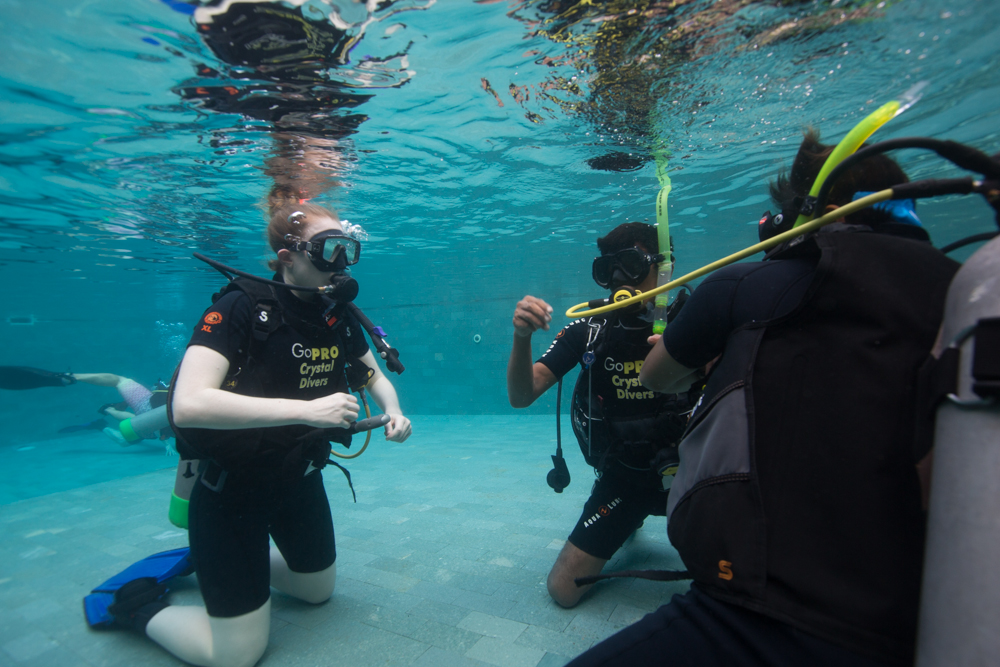I am sitting on my balcony, overlooking the volcanic, black-sand beaches of Amed in eastern Bali, watching the sunrise over a volcano and the flat, calm water of the bay in front of me. I have spent the last few days exploring the beautiful and productive reefs that lie just offshore, and have lost many hours to the ocean’s seductive spell. I am here with two friends, one American and one Australian, who, inspired by this corner of Indonesia’s perfect conditions, are on the third day of their open-water course. For the past two evenings I have watched them come home exhausted and exhilarated in equal measure; their enthusiasm (and their war stories) making me reminisce about my own open-water course and the sheer magic of that very first breath underwater.
Most, if not all, certified divers can remember their first time underwater, and many will tell you that it was a life-changing experience. The sensation of transcending the boundaries of human limitations, of being able to breathe while submerged is incredible. Divers have the potential to explore so much more of the planet than non-divers, and the underwater world is one of peace and freedom. There is something for everyone in diving — it can be relaxing, or it can produce the greatest adrenaline rush possible. It is beautiful, yet challenging, and the dive community boasts great camaraderie while the sport itself can also be a personal escape. It’s a sport full of options — deep or shallow? Day or night? Freshwater or ocean? Wrecks or reefs? Sharks or nudibranchs? Of course, as a diver, you don’t have to make too many choices; you can simply dive it all.
While learning to dive is an experience made up mostly of highs, as with all experiences there can be some lows. As an instructor myself, I know there are certain skills that many people struggle with, such as mask removal and replacement and the hover, and some that are easy for most but can be real challenges for others. Skills aside, most new divers experience some degree of nerves until becoming used to breathing underwater; the sensation can trigger both claustrophobia and panic. My biggest obstacle as an open-water student was the theory behind the Recreational Dive Planner; there are many facets to learning to dive, and any one of them can cause frustration or uncertainty. This is why it’s so important to choose a properly certified dive operation or an instructor whom you trust and feel safe with, one who is patient and adheres to standards. It’s natural to experience some concerns or problems as a new student, but learning with someone equipped to properly address those issues should guarantee that the highs far outweigh the lows.
This morning, my two friends are off to explore a shallow wreck down the coast with their class. They haven’t talked about anything unrelated to diving since they first enrolled two days ago, from their experience of new skills to the time they got chased by an angry titan triggerfish. They can’t see it yet, but I can — they’ve changed from non-divers to utter scuba addicts.
No one warns you before you take your first breath underwater that diving is addictive. They don’t tell you that to become a diver is to become a member of an obsessive, exclusive club of people who are irresistibly drawn beneath the waves again and again.
So here is your disclaimer: diving is addictive. Side effects include spending far too much money on dive trips and equipment, an altered perception of fun and adventure, and being unable to concentrate on anything other than your next underwater exploration. If these symptoms sound acceptable, learning to dive might just be the best decision you’ll ever make.


